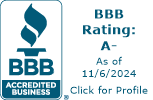Change Management
Ensure your business is prepared for any unexpected events with Myrtle Beach change management planning. Our expert team will help you develop a comprehensive plan to stay ahead of the constant changes the industry makes.

Our Strategy
Change management consulting involves helping organizations navigate transitions in processes, technologies, structures, or cultures.
1. Assessment and Planning:
- Conduct a comprehensive assessment of the need for change, including the rationale, drivers, and desired outcomes.
- Identify stakeholders who will be impacted by the change and assess their readiness, concerns, and potential resistance.
- Develop a change management plan that outlines objectives, scope, timeline, resources, and communication strategies.
2. Stakeholder Engagement and Communication:
- Engage stakeholders early and often to build buy-in, address concerns, and solicit feedback.
- Develop a clear and compelling communication plan that conveys the vision for change, explains the reasons behind it, and outlines the benefits for individuals and the organization.
- Tailor communication messages and channels to different stakeholder groups, ensuring transparency and inclusivity throughout the change process.
3. Leadership Alignment and Sponsorship:
- Secure visible and active sponsorship from senior leaders who champion the change initiative and model the desired behaviors.
- Equip leaders with the knowledge, skills, and resources they need to effectively communicate the vision, motivate employees, and overcome resistance.
- Foster a coalition of change agents across the organization who can support implementation efforts and drive momentum for change.
4. Change Readiness and Capability Building:
- Assess the organization's readiness for change, including its culture, capabilities, and capacity for adaptation.
- Identify gaps in skills, knowledge, or resources that may impede successful change implementation and develop targeted interventions to address them.
- Provide training, coaching, and support to employees to help them understand the change, adapt to new ways of working, and develop the skills needed for success.
5. Implementation and Reinforcement:
- Develop a structured approach to implementing change, breaking it down into manageable phases or milestones.
- Monitor progress against objectives, identify barriers or challenges, and adjust the change strategy as needed.
- Celebrate successes, recognize employee contributions, and reinforce desired behaviors to sustain momentum and commitment to change.
6. Sustainment and Continuous Improvement:
- Embed the changes into the organization's culture, processes, and systems to ensure they are sustained over the long term.
- Establish mechanisms for ongoing feedback, evaluation, and learning to continuously improve change management practices.
- Foster a culture of agility and adaptability that enables the organization to respond effectively to future changes and challenges.
7. Measurement and Evaluation:
- Define key performance indicators (KPIs) and metrics using a balanced scorecard to measure the success of the change initiative, such as adoption rates, employee engagement, productivity, and business outcomes.
- Regularly track and evaluate progress against these metrics, using data to inform decision-making and course corrections as needed.
- Conduct post-implementation reviews to assess the impact of the change, capture lessons learned, and identify opportunities for further improvement.
By following a structured change management strategy, consultants can help organizations navigate transitions more effectively, minimize resistance, and achieve sustainable results.

